Reviews
Ernst Lubitsch
USA, 1939
Credits
Review by Matt Barry
Posted on 25 February 2011
Source TCM
Categories Brackett & Wilder
Ninotchka represented something of a return to form for director Ernst Lubitsch. Coming at the tail end of the 1930s, it also represents one of the last of the carefree romantic comedies made before America’s entry into World War II. Produced at MGM, the film is a triumph of Lubitsch’s light, deceptively effortless style, with Greta Garbo turning in a splendid comic performance. Viewing the film again brings back all the joy and delight this film still has to offer after more than 70 years.
By the late 30s, Lubitsch had experienced a bit of a career slump. After his run of successes at Paramount in the early part of the decade (with films like The Smiling Lieutenant, Design for Living, and the sublime Trouble in Paradise), Lubitsch was appointed the head of production at Paramount in 1935. But his films of this period suffered from the restrictions of the Production Code, which had really taken full effect during 1934.
It was fortunate, then, that Lubitsch ended up at MGM, a studio that could match the high-gloss production style that marked his work at Paramount (and where he had worked once before, when he made The Merry Widow in 1934), and that also had a strong reputation for light comedy, such as The Thin Man series with William Powell and Myrna Loy. The script was written by the team of Charles Brackett and Billy Wilder, along with Walter Reisch, from a story by Melchior Lengyel. Brackett and Wilder had worked on the script of Bluebeard’s Eighth Wife for Lubitsch the previous year, and their other credits in 1939 included the delightful romantic comedy Midnight. Their script for Ninotchka stands as one of their finest works, and much of the satire of the Soviets and of Communism echoes jokes that Wilder would use in his Cold War-era comedy, One Two Three. The plot involves jewels that have been stolen from the Grand Duchess Swana. Count Leon d’Algout is tasked with rescuing the jewels before they are sold on the black market in Paris. Nina Ivanova Yakushova, aka “Ninotchka”, is sent by the Soviets to see that the transaction goes through as planned. However, the icy Ninotchka meets the charming Leon, and finds herself seduced both by Leon and by Paris.
The film marks the first comedic role for Greta Garbo. Its tagline, “Garbo Laughs!”, is a clear reference to the tagline of Garbo’s first sound film, Anna Christie, nine years earlier (“Garbo Talks!”) Co-starring opposite her is Melvyn Douglas, who never quite reached the level of charm and sophistication of master light comics like William Powell and Cary Grant, but who is quite effective nonetheless. The supporting cast features such talented character actors as Ina Claire, Bela Lugosi, Sig Rumann, and Felix Bressart (the latter two would turn up in memorable supporting parts in Lubitsch’s To Be Or Not to Be). Douglas and Garbo have a really fun chemistry together, with his over-earnestness and her stoical exterior providing a perfect contrast, particularly in the scene of their first meeting, with Garbo looking for the Eiffel Tower on a map (“Must you flirt?” “I don’t have to but I find it natural.” “Suppress it.”)
Perhaps the film’s most delightful sequence comes during the moment when Ninotchka first comes out of her somber shell. Dining with Leon in a little café, he grows increasingly frustrated with her inability to find the humor in a simple joke. Ninotchka doesn’t crack so much as a smile. That is, until Leon’s chair collapses underneath him, and Ninotchka bursts into uproarious laughter, along with the café patrons, and finally Leon himself. It’s really a cathartic moment, especially coming from Garbo. The moment itself is a revelation, and really conveys the power of laughter (being more natural, and therefore more effective, than the moment in Preston Sturges’ Sullivan’s Travels, when the members of the chain gang join the members of the church congregation in uproarious but rather forced laughter over a Disney cartoon). As mentioned earlier, the film is set in a carefree, pre-WWII Paris, but it does contain elements of political satire, though it is far from the out-and-out black comedy that Lubitsch would turn to just three years later in To Be Or Not To Be. There are some frankly bleak scenes taking place in the Soviet Union, specifically set up to contrast Ninotchka’s life there with the life she has discovered in Paris with Leon. Just as she succumbs to the joie de vivre of Paris, so do her three cohorts, who are eventually seduced by capitalism (and providing the film with its great topper joke at the end).
Ninotchka stands as one of the finest films Lubitsch made. It was reportedly one of the director’s own favorites among his films, and it’s easy to see why. It takes full advantage of the high production values that the Hollywood studio system provided, with a witty and sparkling script, and a standout performance by one of Hollywood’s greatest icons.
More Brackett & Wilder
-
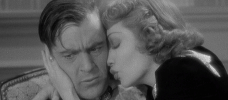
Bluebeard’s Eighth Wife
1938 -
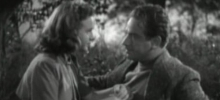
That Certain Age
1938 -

Midnight
1939 -
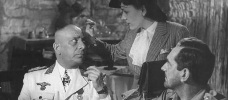
Five Graves to Cairo
1943 -
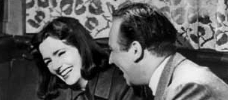
Ninotchka
1939 -
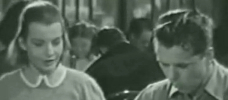
What a Life
1939 -
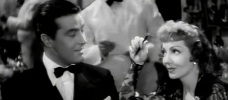
Arise My Love
1940 -
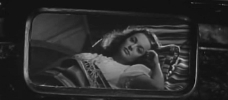
Hold Back the Dawn
1941 -
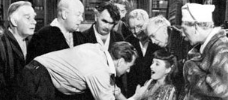
Ball of Fire
1941 -
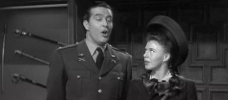
The Major and the Minor
1942 -
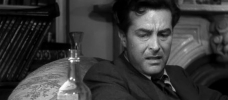
The Lost Weekend
1945 -
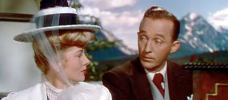
The Emperor Waltz
1948 -
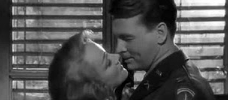
A Foreign Affair
1948 -
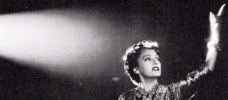
Sunset Boulevard
1950
We don’t do comments anymore, but you may contact us here or find us on Twitter or Facebook.



